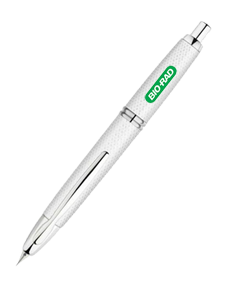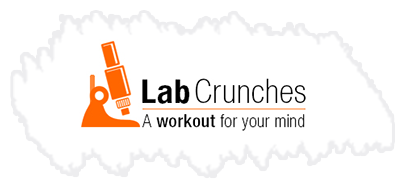
Popular topics

Out of My Comfort Zone: How I Use Science to Influence Policy

2020 Bio-Rad Science Writing Competition 2nd Place
Amanda Koch is a PhD student at Colorado State University in the Biochemistry and Molecular Biology department.
Amanda has a naturally engaging writing style that really impressed the judges. Her thought-provoking article on why scientists shouldn’t avoid policy issues includes helpful tips for other scientists wishing to start conversations around science policy. A really enjoyable read that is full of practical advice.
We are delighted to publish Amanda’s entry below.
I once had a meeting with a senator’s staff member while they walked down a hall to another meeting.
The staffer came out of their office, looked at me, asked my name and then said, “follow me” as they turned into the hall. Frazzled, I gathered all my things; I was carrying too many things and not wearing the right ‘catch-up with me’ shoes. But I caught up. Wordlessly, the staffer opened their hand, clearly expecting something from me. I put my sweaty palm into their open hand, then realized they were not expecting a handshake. A business card! Right! As I dug around in my oversized bag for my card, they said, “Sorry, but another important meeting came up. We are going to have to chat on my way.”
I was there to tell the staffer why the senator should support funding for scientific research. I had to do it in three minutes.
From what I’ve seen as a senior PhD student, many scientists avoid policy issues. But government leaders make policy decisions that directly affect scientific research. Every year Congress creates a federal budget that includes science funding. As scientists, we need to step up and talk to policymakers who may not see the importance of our research.
My motivation to advocate for science came during the 2016 elections. At that time, I was studying hard for my qualifying exams, developing a thesis project, conducting experiments that seemed to fail constantly, and all the while trying to understand what was happening in the political world. Watching the news and the presidential debates, I realized within the government that evidence-based decision making was not well-practiced, and support for science was extremely lacking. I decided then that I wanted my scientific voice to be heard in politics.
Over the past 50 or so years, there have been times when the government increased science funding because a policymaker thought a certain area of research was important. President John F. Kennedy wanted Americans to be the first to the moon ─ NASA received increased funding. Vice President Joe Biden’s son died of cancer ─ the National Institutes of Health increased funding for cancer research. But scientists don’t have to convince the president or vice president of the United States that scientific research is important. Advocacy can start at a city council or a state capitol.
And it doesn’t have to be a solo endeavor. Scientists can form coalitions to advocate collectively. I know I work better in a group, so with my new passion for science advocacy I reached out to my fellow PhD students and professors (who were also motivated to take action from the 2016 elections) to form an advocacy group. Together we brainstormed, learned about federal and state budgets, and developed an advocacy game plan. First, we created a tight and trustworthy network within our university. We locked down funding for our advocacy group and garnered support from the university administration. Then we talked to our city council members about how we, as scientists, could best serve them. We developed relationships with our state senators and representatives so we could share our scientific opinions on current legislation. We also started keeping our eyes open for legislation at the federal level and discussed it with our senators’ local staff members.
At first, science advocacy seemed daunting, but it ended up being straightforward and fun, especially with a great group and a growing network.
Here, I’ll walk through my advocacy protocol and describe actions I’ve taken to push myself out of my lab and make my voice heard in the policy world.
-
Be part of a group
This means leaving the lab for a few hours to connect with people. I started by having conversations with people I worked with who were politically aware or already engaged. Those conversations evolved into forming a university organization for graduate students and postdocs around science policy and communication. A group with similar goals may already exist on your campus. In that case, do not start an identical group; a bigger collective voice is more powerful than scattered voices.
-
Develop a message
When you go into a meeting with an elected official, what’s ‘the ask’? This can be challenging; it’s hard to keep up with the news and decipher complicated legislation. I started with letter-writing campaigns encouraging my senators to support science funding and to seek out scientific experts when making policy decisions. Both of these asks align with most scientific disciplines. To develop more specific asks, I partnered with national science policy organizations. Most scientific societies have advocacy initiatives and policy experts. These groups provide amazing resources and are important allies. They will train you, explain the policy issues, and give you needed empowerment.
-
Be clear and concise
When developing an ask, I’ve learned to avoid complex terminology. The message must stick with the policymaker, and science jargon is not the way to do that. Also, be aware of how much time you have. The overall message must be concise. To make the specific ask memorable, I mention it at both the beginning and end of the conversation.
My final recommendation for developing a message, which will come easily to scientists, is to do background research. Knowing about a policymaker’s past decisions helps me formulate my message with confidence and makes the conversation go smoother.
-
The follow-up
Once my nerves settle after a meeting, I always send an email thanking the person for their time and offering further support on the topic if needed. They also follow up with me to let me know how they voted (usually when they vote for what I was advocating) or simply that my concerns were heard. Maintaining contact builds a relationship with the policymaker or staff member.
As scientists, we may feel removed from policy issues. But I believe science can and should inform policy. That’s why it is critical, especially during this election year, to step out of the lab and be the voice for science.
Bio-Rad's Science Writing Competition Results
There was a huge number of entries from all around the world and the judges were impressed by the high standard of submitted articles across a breadth of different topics.
'As scientists, we may feel removed from policy issues. But I believe science can and should inform policy. That is why it is critical, to step out of the lab and be the voice for science.' - Amanda Koch
You may also be interested in...
















